JD's Midlife Tools For Living Practices, LLC



Image by pikisuperstar on Freepik
Believe it or not but election grief is a real thing. There are many kinds of losses.
Most of our understanding of grief however is based on losses that are clear ones like the death of a loved one. Many losses however are with situations that are unclear—like a loved one missing in action and the unknown if they will come back or be found. Or loss situations that are beyond our control—like the Covid pandemic when there was nothing we could do but learn to live with all the uncertainty. These are ambiguous losses.
“Ambiguous loss” is a term coined by Pauline Boss back in the 1970’s when she was a therapist working with the wives of soldiers missing in action during the Vietnam War.
Election grief is an ambiguous loss.
-the loss of hopes and dreams for a future you thought your candidate would bring
-the loss of a future that you wanted
-the loss of trust that the world is a safe place
-the loss of freedom over your body
-the loss of support for or from your neighbor and people who are different from you
There are no rituals, no funerals, no death certificate, no support, no comfort offered from others. We are just rather stuck in it and with it. It’s not clear either that you’ve actually lost something because you can’t see it. It is our perceptions that define exactly what has been lost. Our perceptions are unique to each one of us.
Some things to remember:
It is normal to grieve when you are experiencing something you didn’t expect, don’t like, came on suddenly and unexpectedly. In fact, it is a major loss. Accept it as one.
It is normal to feel angry and sad and numb and even scared or helpless and powerless too. Accept all your emotions.
It’s normal to carry sadness with us when we are attached to something, someone, some idea and lose it. It’s normal to remember it and not forget it, feel it years later as we reflect back. We don’t have to forget it either.
Some things to do:
Do something you can control in your house, your family, for yourself—do something that requires action and makes your body move.
Reflect on what is important to you, what you care about in yourself, you family, your community, the nation, the world. Write it down.
Cultivate your tolerance for uncertainty—go do something different, something new, get to know people you who are very different than you are. Stretch yourself.
Channel your energy into doing something to help bring change in your community, your family or in yourself. Change helps keep us going. Get yourself involved.
Importantly honor your grief. Be kind to yourself. This is a very difficult time. You are having a normal grief reaction to something you didn’t want to happen or expect it would either. Give yourself the space and time your need to grieve your loss. And know it’s ok to do so!
And know it’s ok to reach out for grief therapy if you need more support. Do Contact Me!
JD’s Midlife Tools For Living Practices, Holland, MI
Offering Heartfelt care, Compassion and Coping Tools
Information for this post was acquired from:
https://www.scientificamerican.com/article/election-grief-is-real-heres-how-to-cope/

Election day has finally come and gone. It’s been a very long election year filled with so much intense emotion. We are all weary and emotionally spent. Given the extreme dividedness our country it’s frightening to consider what just might come next.
This is a very important time to take a mental health break and explore the amount of stress you are carrying and practice some coping tools to help you chill your worked-up system.
“Feelings come and go like clouds in a windy sky. Conscious breathing is my anchor,” said Buddhist Monk, Thich Nhat Hanh. This meditation is a powerful tool to help remind us that feelings do indeed come and go.
Our breath is with us 24/7. We can use it to calm our stressed-up body when are minds are whirling with emotion. Our breath can ground us. Soothe us. Calm us.
And, all we need do it to take a few slow deep breaths no matter where we are and focus our mind on the air coming into and out of our nose and lungs, feel our chest expand with our inhale and contract when we exhale.
Head out doors and take a walk out in nature to see the clouds, watch the wind move the tree limbs, listen to the birds chirping, smell the air. Nature calms our system. Walking for even 10 minutes helps improve our mood. Walking reduces the stress hormone cortisol and helps us feel less stressed and more relaxed.
Go do something fun with a friend. Turn off the news and connect with the people around you.
Give yourself the opportunity to process your feelings about the election—the grief, disappointment, frustration, anger, guilt. It can help to write them out. Express them on paper. Let yourself have a good cry or pound on a pillow if you need to.
Think about what you are grateful for and write it down in a daily gratitude journal. Even in hard times there is much to be thankful for in our lives. Gratitude gives us strength.
Consider what you can and cannot control and put your energy into that which you can. We have choices to make about what we focus on.
Do reach out to a therapist if you are having difficulty coping with the stress that you are experiencing. It is a strength to ask for help when we need it!
We actually do things in common with each other. We share core values as human beings.
We can make the choice to focus on those shared values rather than labeling people who think differently than we do as being extreme, or illogical or hateful.
Focusing on common ground builds connections. It is connection that helps reduce our overall stress. Because I am really not so different than you I don’t need to be so revved up, stressed out and live in fear of what is going to happen next.
It is up to each one of us to decide if we want to continue living in the stress we have been or take steps to build a healthier self, community and country too!
Just what choices are you goanna make?
Do Contact Me if you need some therapy support.
JD’s Midlife Tools For Living Practices, Holland, MI
Offering Heartfelt care, Compassion and Coping Tools
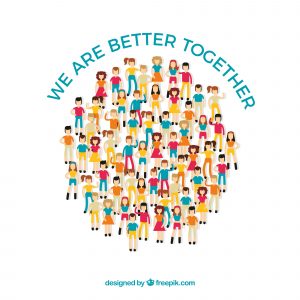
The great political divide in our country has influenced so many parts of our lives including our perceptions of “facts”, our friendships, our world view and our ability to relate with civility towards one another. Uncertain times and disagreements on so many topics have become very polarizing. This has led to a negative impact on our mental health and well-being including an uptick in anxiety, helplessness, and depression.
We the people in this country have an enormous amount of work to do. We have become so divided, so angry with one another, so negative, so ugly, so harsh, so quick to judge, so hateful. I do wonder if we can ever become respectful and civil again.
According to the Oxford Languages Dictionary: “Civil pronounced: civ·il /ˈsiv(ə)l/ is an adjective and means:
1. relating to ordinary citizens and their concerns, as distinct from military or ecclesiastical matters. “civil aviation” Similar: secular, nonreligious, lay, laic, laical, nonmilitary, civilian. Opposite: religious, military.
2. courteous and polite. “we tried to be civil to him”. Similar: polite, courteous, well-mannered well bred, gentlemanly, chivalrous, gallant, ladylike, gracious, respectful, refined, urbane, polished, cultured, cultivated, civilized, cordial, genial, pleasant, affable, obliging, decent, mannerly. Opposite: rude, discourteous.”
We’re moving further and further away from being a courteous and polite civilization especially when politics is front and center.
If civilization means, as the Oxford Languages Dictionary indicates: the stage of human social and cultural development and organization that is considered most advanced. Then, we seem to be taking steps backwards developmentally as one.
It is one thing to debate and disagree and quite another to resort to uncivilized behavior. Being vulgar, brutish, thuggish, barbaric, savage—all synonyms for the word uncivilized so says the Oxford Languages Dictionary.
What do you want for your life? For the world around you? For your family and friends? For your city, your neighborhood, your neck of the woods?
If living in a civil mentally healthy society is a priority to you, it requires each of us to commit to intentionally bring as much peace and tranquility as we can into our daily life.
That is a rather tall order too! It’s very hard not to get ramped up and worried up. It will take a good amount of work and effort not to do so. And it requires attention and intention too.
Do pause and take notice of how you are responding emotionally and what you are thinking. Simply observe and label what it is that you are thinking. For example that is a worry thought, or a judgment thought. When we do this we give some space between ourself and the thought itself. And then we can more readily respond thoughtfully instead of reacting emotionally.
Make a commitment to be respectful. Communication is about the words we say, the tone we use, and our body demeanor. Be intentional about how you come across to others.
It’s important to recognize what we can and can’t change. We really do not have the power to change another person’s beliefs, ideas, perspective….no matter how much, how badly we want to. We only have the power to control ourselves and how we respond, react, think, feel, believe. So, save your breath and your sanity. Zip your lip! Let be what is.
Do be kind, even if you disagree with someone, approach the conversation with kindness. Kindness opens the door to understanding, which is something we all need more of,
especially when our perspectives differ. The art of kindness involves having a spirit of helpfulness, being generous and considerate, and doing so without expecting anything in return.
Do think of kindness as a quality of being you can cultivate. Giving kindness often is simple, free and mental health-enhancing. Kindness has been shown to increase self-esteem, empathy and compassion, and improve mood. It can decrease blood pressure and cortisol, a hormone directly correlated with stress levels.
Do approach others with curiosity and humility. Instead of always asserting your own opinion, have the courage to ask more questions and to genuinely seek to understand the other person.
Remember our neighbors really are not our enemies. We can be friends if we make the choice to do so. We each have the power to connect with others and foster meaningful relationships. If we use this power we will begin to heal our country’s divides and progress as a decent civilization. We don’t have to abandon our own values but rather hold onto them while we also embrace the importance of respect, empathy, and kindness.
The divisiveness in our country won’t heal overnight. It will take a lot of work to bring civility back into focus and it’s our job, our responsibility as individuals to use our power to get the country back on the right track and closer together again.
Each day I have a choice and so do you to do all it takes to be a decent civilized human being and treat other human beings with respect. Our well-being and mental health would be enhanced if we would all aim to be respectful and display civility.
Please do make the choice to be an example, live life with civility—politely and courteously relate to others especially those with whom you disagree!
We, the people, desperately need you too—together we will make a difference!
Do Contact Me if you would like to learn more and be supported as you nurture your mental health and bring civility back into your life.
JD’s Midlife Tools For Living Practices, Holland, MI
Offering Heartfelt care, Compassion and Coping Tools

Birds are all over, almost everywhere and give is a way to easily connect with nature.
Research shows that being out in nature is associated with better brain and body health. And just seeing or hearing birds has been shown to be good for our mental health!
Hearing birds sing:
*can help alleviate feelings of anxiety
*can help improve our moods
*can help reduce depression
*can help reduce mental fatigue
*can help improve concentration
*can reduce stress levels
Even listening to recordings of bird songs for as briefly as 6 minutes can help reduce feelings of anxiety and depression.
Getting out to experience nature, seeing and hearing the birds requires some physical activity which itself helps improve our mental health. And getting exercise outside may increase the overall mental health benefits of both.
1. Listen to what the little birdy tells you! Notice the singing, pay attention, be aware of the different tunes around you!
2. Be free as a bird and be curious about who is making those beautiful sounds around you! There are various aps available that can help you identify just who is who too!
3. Birds of a feather flock together…you might even consider finding a birding group to join in your area to share and learn more too!
4. Be light as a feather…stay in the present, pull your thoughts to be here and now rather than being all caught up in your head…let yourself experience the joy your little bird friends can bring to you!
Who would have thought that with a little help from our fine feathered friends we can improve our mental health!
If you are looking for other ways to help improve your mental health especially if you are dealing with depression or anxiety or grief do Contact Me today to begin therapy and learn some additional life coping tools!
JD’s Midlife Tools For Living Practices, Holland, MI
Offering Heartfelt care, Compassion and Coping Tools
To learn more check out this interesting article and hear recordings of some bird songs too:
https://www.washingtonpost.com/wellness/interactive/2023/birds-song-nature-mental-health-benefits/
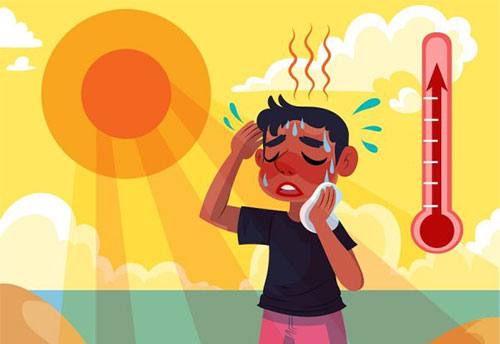 That could be due to heat stress! Believe it or not but research shows that extreme heat has consequences not just for our physical health but also our mental health! One study noted a 40% increase in the likelihood of hospitalization for depression and mania during periods of high heat. And another one found a correlation between high temperatures and increased suicide rates. Another study noted the increase of violence and conflict as the temperature increases.
That could be due to heat stress! Believe it or not but research shows that extreme heat has consequences not just for our physical health but also our mental health! One study noted a 40% increase in the likelihood of hospitalization for depression and mania during periods of high heat. And another one found a correlation between high temperatures and increased suicide rates. Another study noted the increase of violence and conflict as the temperature increases.
If you are noticing that you are having some emotional challenges you are not alone. Most of the US has been struggling with extreme heat and it is barely officially summer.
Heat stress happens when our body can’t readily regulate its temperature and cool us down. Most of us are aware it can lead to heatstroke and we need to take precautions. But is also can interfere with our sleep and alter our daily routines both of which can lead to increased stress and even cognitive impairments. When we don’t get good sleep, it affects our moods too.
Heat stress can increase our anxiety by activating out body’s stress response and heightened levels of stress hormones in our bodies. As a result, we can feel restless and apprehensive.
That stress response can lead to being irritable and agitated due to those stress hormones. And we can find ourselves more easily frustrated, irritable, restless, impatient and having more conflict with others. It can contribute to mood swings, feelings of sadness too.
High temperatures actually affect our ability to cope with stress and weaken our resilience making it harder to manage daily stressors and challenges.
When it’s so hot we aren’t so motivated to engage in activities, our energy gets easily drained too. We can end up feeling a sense of helplessness, despair, and powerlessness when we can’t escape the relentless heat.
Those of us who have mental health conditions like depression, anxiety or bipolar disorders may experience more intense symptoms during heat waves too. It’s very important to manage your condition extra well during periods of extreme heat.
The good news is that mindfulness and stress management techniques have been shown to be helpful tools to assist in the effects of heat stress.
Mindfulness are practices that help us to stay present and calmly acknowledge out feelings, thoughts and bodily sensations. Mindfulness appears to help us manage our reactions to the heat and reduces our emotional distress. Tools include mindful breathing, guided meditations, progressive muscle relaxation.
Stress management tools like maintaining a regular sleep schedule, eating a healthy balanced diet, staying hydrated and taking breaks from the heat can also be helpful.
If you find yourself struggling to cope do know that therapy can play a vital role in coping with heat‐induced mental stress. Therapy can be a safe place to explore your feelings and develop coping strategies and alter patterns of thought and actions that contribute to your anxiety and depression distress.
Since weather extremes appear to be here to stay it is really important for us all to have the tools we need to cope well with whatever mother nature brings our way!
Do Contact Me to begin Anxiety Therapy or Depression Therapy today!
JD’s Midlife Tools For Living Practices, Holland, MI
Offering Heartfelt care, Compassion and Coping Tools
Image “Designed by Freepik”
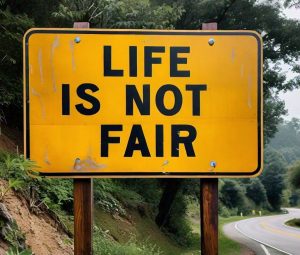
Just how many times have you uttered those words? Thought those words? Even screamed those words out loud? My guess is way more than once in your lifetime. I know I have.
I remember hearing many years ago for the first time: ‘Life is a bitch and then you die’. I was appalled at the time because the individual saying those words meant it with all conviction. And I did not want that to be the case for this or any person to believe.
And if you think about it, what is ‘unfair’ often depends on which side of the fence you happen to be on. Someone wins someone loses. Someone’s moral compass is different than the norm. Someone is very human and makes a mistake. Someone sees from a different perspective.
Bottom line is, it didn’t go my way! It didn’t go the ‘right’ way! And, I really don’t like it!
And no matter how hard we try we really can not change the fact that life is still not fair. We can however end up miserable, view ourselves as helpless victims, get stuck wallowing in our anger, push people away due to our negativity, become so stressed out we have mental health and physical health problems because of it.
All because we can’t accept the reality that life is simply unfolding as life does. It’s a series of events. And our opinions about the fairness or unfairness of it all won’t change life from being life happening as it happens to happen.
We have the power to discern what we can and cannot change, what we can and cannot control. We have the power to accept that which we cannot change and control too—it is not necessary to agree with it but to be simply able to acknowledge what has happened. When we stop fighting against what is we actually take control of ourselves in ways that allows us to take steps forward rather than staying stuck in an emotional tantrum.
So, take a deep breath or 2 or 3 the next time you start thinking ‘it’s so unfair’, calm your system down and ask yourself if this is something you have any control over or not. Remember you can’t control others, you can decide how you will react—this is your power to not allow something you have no control over, no ability to change to take control of you!
Pause and think about a challenging experience in your past, something you really didn’t want to have occur but it did. What did you do to resolve it? Just how did you do that? What qualities, inner resources, strength’s that you have helped you get through it? Name them out loud or write them down. This is your resilient self. Honor him/her/them. Remember your resilient self is standing right here with you all the time. Ready in a moment’s notice to help you cope with the next challenge life presents in your direction.
Rather than let it fester inside get it out. Talk about it with a trusted good listener friend, write it out—journaling is a helpful way to get things out, draw or paint your emotions, sometimes simply talking out loud and hearing yourself say the words can help.
The news, social media does focus on the bad stuff that goes on in the world around us. It’s easy to let the headlines get in our way of seeing other things going on too…like when someone says hello, holds a door open, thanks you, offers to help, compliments you, just smiles at you, does something that that makes you smile, gives you a hug, says they love you, sends you a card or note. All those wonderful little things add up each day. And, it can be easy to set them aside when those nasty headlines are flashed in our faces. It’s important to remember all the other things that are presented to us each day and hold them in full view!
Counseling can help you process your experiences and emotions and acquire coping tools so you can learn how to accept that which you cannot change or control. And, prevent you from experiencing periods of depression and anxiety too.
Living it fully requires us to accept all that comes our way. With that calm acceptance we can make a difference in places and situations that can lead to positive change in all kinds of ways, especially inside our own selves and our own lives!
Do Contact Me begin Anxiety Therapy or Depression Therapy today!
JD’s Midlife Tools For Living Practices, Holland, MI
Offering Heartfelt care, Compassion and Coping Tools

Designed by Freepic
Yes, election anxiety is a real thing. In fact, ‘election stress disorder’ is a concept that many mental health professionals are using although it is not an official diagnosis. It occurs when we experience overwhelming anxiety and we end up with several distressing symptoms that interfere with our daily living.
-You obsess about the election and keep so close an eye on the news you have difficulty not thinking about it.
-You have heightened tensions in your body—especially shoulders and neck.
-You are more irritable than normal—your fuse is rather short, you’re on edge, snap or drive fast.
-You have difficulties in your relationships because of your impatience, resentments or lack of compassion.
-You have disrupted sleep, toss and turn, have bad dreams about the election.
-You have physical symptoms—headaches, stomach upsets, fatigue, get sick easier.
-You have difficulty concentrating and make impulsive decisions.
-You drink or use drugs more.
The reality is that the last two presidential election cycles have been brutal for a majority of Americans. Polling by the American Psychological Association in 2016 revealed that 52% of Americans surveyed said the election that year was a “significant source of stress” in their lives. By 2020 that number had risen to 68%.
Since 2024, is likely to be a rematch of the 2020 presidential contenders. This year’s election is darned close to being a perfect anxiety storm!
1.Stop looking for doom by scrolling, deactivate alerts, and limit news consumption to 30 to 60 minutes daily.
2.Figure out your personal triggers, observe yourself. Who sets your off—a particular talking head, politician or news show set you off. Avoid your triggers.
3.Find balanced news sources that don’t have a bias in any certain direction. AllSides, a media bias rater lists Reuters, BBC News, The Hill and Newsweek as balanced news providers.
4.Do take care of yourself physically—get exercise, good sleep, eat a healthy diet.
5.Do take care of yourself emotionally—perhaps try meditation, massages, bubble baths, walks in nature, read a good (nonpolitical) book, listen to music, enjoy a hobby.
6.Stay connected with family and friends.
7.Avoid political arguments. Do practice respect, compassion, tolerance, just listen. Try not to judge others.
8.Refocus your attention and energy, determine what you can and can’t control and concentrate your efforts on those things you can control.
And if your anxiety due to the election is causing significant impairment, or causing clinical depression and sadness, and tearfulness, and feelings of hopelessness or helplessness that evolve into feelings of despair or even suicidal thoughts, certainly, do seek out professional help!
Do Contact Me begin Anxiety Therapy today!
JD’s Midlife Tools For Living Practices, Holland, MI
Offering Heartfelt care, Compassion and Coping Tools

Designed by Freepik
Trauma can make it hard to go about everyday life. It can shake our sense of safety and create PTSD symptoms for us too!
When we experience the same traumatic event together whether as a community, country, family, work place, school we all can be affected in similar ways. Collective trauma results and this can change us at our center, at the heart of our community and of our relationships with family and friends.
Collective trauma events include things like hurricanes, earthquakes, tornadoes, slavery, mass shooting, the migrant detention centers at our borders, wars, volcano eruptions, fires, floods, railway and aviation accidents, sinking of ships, the Holocaust, Chernobyl, 911, the Covid 19 pandemic, National elections.
We have certainly had our share especially over the last several years!
Because trauma that is shared can affect us in many way not everyone will experience it exactly the same. Some of us will be more influenced than others. It can leave us struggling with our mental health, create challenges for generations and bring problems in our relationships. People may have to adjust to a new way of life and end up relating differently to each other.
Sometimes collective trauma is carried forward to a future generation when an ancestor has not fully processed and healed from a trauma experience that occurred to them. When it is difficult to recognize the source of ones struggles in the here and now it may have been carried forward from incidents in the past.
Some of us are better equipped to handle the challenges a trauma event can bring. Others of us are not so well equipped with the mental health resources we need to do so.
-Be aware. Notice how a collective trauma experience affects you and those around you. Process your feelings—journaling is a useful tool to do this.
-Talk to someone you trust. Learn to express your feelings. Open up about what has occurred to you and those around you.
-Take good care of you—eat well balanced meals, get good sleep, move your body.
-Find tools to calm your system—practice breath work, meditation, yoga.
-Give yourself time to work through the events and emotions you’ve just experienced. Be patient and compassionate with yourself. Healing is a journey.
-Do something to help others. This can help you gain a sense of control.
-Look for what you can be grateful for.
Remember that you do not have to deal with collective trauma on your own. It’s ok and important to connect with others, with safe people you can trust and be yourself around. Sharing experiences increases our resilience.
If you are struggling with intense feelings of depression and anxiety and just not sure what to do reach out for PTSD/Trauma Treatment. It’s important to take very good care of you!
Do Contact Me today!
JD’s Midlife Tools For Living Practices, Holland, MI Offering Heartfelt care, Compassion and Coping Tools!

Designed by Freepik
We are here once again in that ‘wonderful time of the year’ as the song lyrics go. This time of year, when we gather with and think of friends and loved ones we also do take notice of who is missing from our lives. And the reality of that loss, our holiday grief is painful.
It can slam into us out of nowhere and knock us over producing great sobs. Grief can gently nudge us with a reminder that brings a tear to our eye or into our heart. And presents itself to us in a multitude of ways.
It does take some amount of work or effort or practice to witness our grief, allow it to be, and feel the emotions. It doesn’t work to try to push it all way. Perhaps for a bit it will quiet down. But it won’t just simply go away and it only will be worse for us if we try to hide or mask it.
It’s normal to be touched by our grief during this what is supposed to be a joyful, wonderous time of the year. If you consider it, grief is a way we pay tribute to our relationship with those who are no longer by our side. If we didn’t care we wouldn’t feel the loss. And this can be loss of a family member, friend, and a beloved furry friend too.
We experience grief as well when we or someone we care about moves, we experience a divorce or job loss, an important friendship ends.
We are all unique in how we experience emotions and that includes grief. We each grieve in our own way and in our own time. There is no one way or a right or wrong way to grieve any loss.
Grief is a process of letting go, accepting and learning to live with the loss. This process takes time. It’s important to have compassion with ourselves as we do grief work for it is indeed work when we are grieving.
Not only does it take time but also energy and it can be rather exhausting work too—both physically and mentally. So, we need to allow space in our life to do grief work.
It is important to have some coping tools to practice with when we are grieving. Some of us find comfort in journaling letters to our loved ones or simply writing down and validating what we are feeling and experiencing. Finding others to confide in such as a grief support group or trusted friend can help us feel supported. It helps to learn that others experience grief too. We are not so alone.
Attending therapy can be a way to help ourselves work through our grief, learn and practice additional coping tools, and be heard and supported too.
It is especially important to seek therapy if our grief is unresolved meaning we are unable to function normally or have intense suicidal thoughts or feelings of hopelessness. You can call 988 to talk to a trained helper, discuss this with your family doctor, but do call 911 or go to the nearest emergency room if you are experiencing a life-threatening emergency!
“Tis the season to be jolly” brings a mixture of challenges to our lives and awareness of our losses is definitely one of the challenges we contend with during this season! It just is. At times this season can leave us very far removed from feeling jolly.
This holiday season, do know that if and when grief shows up on the door step of your heart it’s ok to open that door and allow yourself the time and space you need to experience it. You will not be the only one doing so.
Remember it’s ok to ask for help when you need it from a trusted friend, your doctor or professional counselor.
Make a commitment to yourself to do all it takes to take good care of you this holiday season. You deserve to give yourself this gift! And no one but you can give it to you!
You can find more information about grief on the Grief Therapy page.
Do Contact Me to begin grief therapy today!
JD’s Midlife Tools For Living Practices, Holland, MI Offering Heartfelt care, Compassion and Coping Tools!
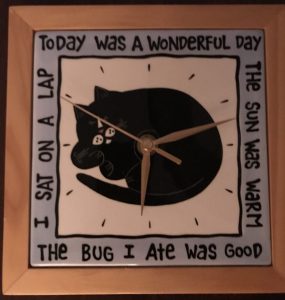
As our days are getting shorter especially since our fall back time change it’s not surprising if you begin to notice some mood changes. That includes feeling symptoms of seasonal depression.
As we change the clock, we also change our sleep cycle, our chemical balance and our circadian rhythms too.
The loss of natural light can cause us to experience a decline in our body’s ‘feel good’ chemical called serotonin that resides in our brains. The sun is our primary source of vitamin D which is an essential nutrient for our overall mental and physical health. We don’t see as much of the sun this time of year.
As the nights get longer our body’s production of melatonin increases. Melatonin is a sleep related hormone and, in the evening, it helps you feel sleepy.
The National Center for Biotechnology Information reported in the week after the November time change that people in their study had an increase in sleep dissatisfaction, difficulty staying asleep, in excessive daytime sleepiness, and in difficulty falling asleep.
When our internal body clock is disrupted as the days get shorter, it can lead to experiencing symptoms of depression. It is believed that melatonin plays a role for people with Seasonal Affective Disorder or SAD.
According to the Cleveland Clinic about 5% of us have SAD and 10-20% of us experience a mild form of it. People with it reportedly get 53 minutes less sleep in October than they do in September.
Seasonal Affective Disorder symptoms include:
Those of us here in West Michigan experience one of the Nations top grayest areas this time of year! More people who live in low sunlight states have SAD then those who live in areas with the most sunlight.
Make sure you have heathy sleep habits with a consistent pattern of bed time and wake up times.
Get outside—even on the gray days there is actually more of the kind of light outside that your body needs than you might think. Take a walk and on sunny days do soak up the sunshine!
Consume a healthy diet and be mindful of the amount of caffeine and alcohol you drink as both affect your sleep.
Move your body—even small amounts of exercise will help you feel better and energized.
Be social—keep in touch with family and friends.
If your seasonal depression symptoms are troublesome to you do reach out for Depression Therapy.
If you have intense thoughts of death or suicide don’t hesitate to call 988, 911 or go to the nearest emergency room for immediate assistance. You are worth taking good care of!
Do Contact Me today to begin therapy so your SAD doesn’t overwhelm you and you can enjoy a wonderful day!
JD’s Midlife Tools For Living Practices, Holland, MI Offering Heartfelt care, Compassion and Coping Tools!
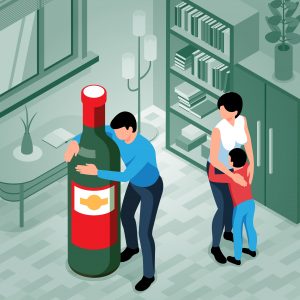
Designed by Freepik
It is so hard to watch a loved one with a substance abuse problem. They keep drinking too much over and over and over. You want them to stop and join the family again, not behave in ways that are so hurtful. You want to say something, to tell them to stop. Perhaps you have and even pleaded with them.
You can be open and honest about your concerns. The choice to stop is up to them to make and do. It is common for loved ones to react with defensiveness, anger, to lash out and even deny that their drinking is a problem when concerns are brought up to them.
Some do’s:
-Find a time when your love one is not or has not been recently drinking and you are both calm.
-Find a quiet private place where you won’t be interrupted. Turn off your phone.
-Tell your loved one in a caring way about your concerns with their drinking, the effect it’s having on their health, your relationship and your family.
-Be neutral and compassionate. It’s important not to judge your loved one’s behavior or try to shame them. Choose your words carefully—rehearse ahead of time.
-Encourage your loved one to open up with you.
-Do expect pushback and denial.
-Give your loved one time and space to come to terms with your concerns.
Some don’ts:
-Don’t take negative reactions personally or let the reactions get under your skin.
-Don’t threaten, punish, bribe, preach, make ultimatums. These gestures will only add to the problem and increase your loved one’s reasons to drink and feelings of guilt.
-Don’t cover up or make excuses for your loves one’s behavior. Shielding someone from their responsibilities prevents them from seeing the negative consequences of their drinking which delays them from getting help.
-Don’t blame yourself—you are not to blame for their drinking or responsible for their behavior and you can’t make them change.
When the time is right encourage your loved one to reach for help. Do realize however that your loved one needs to initiate these steps. They will need support, guidance and to learn new coping skills.
You can offer to sit with them while they call to make appointments or get information about treatment options. You can offer to accompany them to their doctor, counseling or group sessions. It is ultimately up to your loved one. Importantly do offer ongoing support and love as your dear one makes their way towards a recovery journey!
If you live in the greater Holland, MI area your loved one is welcome to Contact Me to start in person Substance Abuse Treatment!
And remember, it is important for you to seek support for yourself too! Therapy can help you learn new ways to communicate and take better care of yourself!
Do Contact Me today to start your own recovery journey! I offer both in person and virtual therapy counseling sessions.
JD’s Midlife Tools For Living Practices, Holland, MI Offering Heartfelt care, Compassion and Coping Tools!

Grief is work and definitely grief is hard work too! It plugs along at its own pace. We can’t rush it, force it, avoid it…oh, we can try but it bites us in the rear if we don’t step up and do the hard work to bravely walk through it. Doing so is exhausting work.
It’s is so hard to believe it has been a whole 10 years since my dad died…seems like it was just yesterday. I miss you Dad!
Grieving is about dealing with our loss and dealing with our loss and dealing with our loss. It goes on and on, it just does. Even for those of us who are doing ‘well’ and ‘moving forward’ it still goes on.
I am a person who knows what its like to have lost a parent. Ten years ago, that pain was so so so very raw and so very intense every time I went any where near its edge I wondered if I’d ever be able to walk through it.
Grief expert David Kessler tells us the goal of grieving it so someday remember with ‘more love than pain’. That does not mean no pain or love instead of pain but ‘more love than pain.’
It still hurts and I miss my dad especially on special days including the anniversary of his death. It always will. How could it not? But that wound is not as raw as it was 10 long years ago. There has been some healing as I’ve slowly walked my way through it allowing my grief to travel with me at its own pace.
What has been your experience with the hard work of grief?
.
Do Contact Me today! Grief Therapy can help you find your way through the pain of grief.
JD’s Midlife Tools For Living Practices, Holland, MI
Offering Heartfelt care, Compassion and Coping Tools
